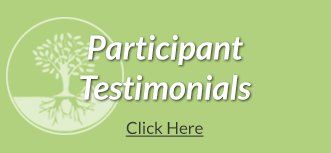
Mindfulness Based Psychotherapy
Both psychotherapy and mindfulness meditation have the purpose of helping us to know our own minds.
These two modalities share the cultivation of observing and being with what is present in our experience as it is, with clarity and compassion.
Mindfulness Based Psychotherapy facilitates the bringing of awareness to experience; body, mind and emotions.
Through mindful awareness, we can witness how we are relating to our experience. We can see how the mind gets entangled with the world it creates, moving into automatic reactivity, grasping, pushing away, reacting to and creating more suffering for ourselves.
Together we will look at various aspects of your life that you feel need attention through dialogue, guided meditation and deep inquiry. We explore the ways in which we can release resistance, judgement and self-criticism and move into greater self understanding and kindness. This new relationship to our experience opens up possibilities for a more spacious sense of who we are, allowing for greater inner freedom and self empowerment.
* The 8 week Mindfulness Based Stress Reduction (MBSR) Program can be followed on an individual basis and catered to your specific needs and aspirations
You Might be Interested in Mindfulness Based Psychotherapy if:
- You have challenging issues you’d like to address such as anxiety, depression, anger, difficulties with communication, relationship difficulties, personal and professional stress, chronic pain, illness and low self-esteem.
- You are looking for a therapeutic modality that empowers you to take a proactive role in your own healing.
- You want to either learn how to meditate or deepen an already existing meditation practice and further explore applying mindfulness in daily life.
The form of inquiry can help you to:
- Develop the capacity for self-acceptance
- Move out of self-criticism and into self compassion
- Attune yourself with your mind/body connection
- Become aware of repetitive thought patterns that sabotage your capacity to realize your full potential
- Improve your personal and professional relationships
- Learn to trust and honor your inner wisdom
Coping with the Impact of Covid-19
The COVID-19 pandemic has had a major effect on our lives. Many of us are facing challenges that can be stressful, overwhelming, and cause strong emotions in adults and children. Public health actions, such as social distancing, are necessary to reduce the spread of COVID-19, but they can make us feel isolated and lonely and can increase stress and anxiety. Learning to cope with stress in a healthy way will make you, the people you care about, and those around you become more resilient.
Stress can cause the following:
Feelings of fear, anger, sadness, worry, numbness, or frustration
Changes in appetite, energy, desires, and interests
Difficulty concentrating and making decisions
Difficulty sleeping or nightmares
Physical reactions, such as headaches, body pains, stomach problems, and skin rashes
Worsening of chronic health problems
Worsening of mental health conditions
Increased use of tobacco, alcohol, and other substances
It is natural to feel stress, anxiety, grief, and worry during the COVID-19 pandemic. Below are ways that you can help yourself, others, and your community manage stress.
Healthy Ways to Cope with Stress:
- Take breaks from watching, reading, or listening to news stories, including those on social media. It’s good to be informed, but hearing about the pandemic constantly can be upsetting. Consider limiting news to just a couple times a day and disconnecting from phone, tv, and computer screens for a while.
- Take care of your body
- Take deep breaths, stretch, or meditate
- Try to eat healthy, well-balanced meals
- Exercise regularly
- Get plenty of sleep
- Avoid excessive alcohol, tobacco, and substance use
- Continue with routine preventive measures (such as vaccinations, cancer screenings, etc.) as recommended by your healthcare provider
- Get vaccinated with a COVID-19 vaccine
- Make time to unwind — Try to do some other activities you enjoy
- Connect with others — Talk with people you trust about your concerns and how you are feeling
- Connect with your community- or faith-based organizations — While social distancing measures are in place, try connecting online, through social media, or by phone or mail
- Helping others cope
- Taking care of yourself can better equip you to take care of others. During times of social distancing, it is especially important to stay connected with your friends and family. Helping others cope with stress through phone calls or video chats can help you and your loved ones feel less lonely.
Source: Center for Disease Control and Prevention (CDC)
For more information and to schedule an appointment, please contact Gina Rubinsky at Gina@living-arts.ca
or 514-730-7882
or 514-730-7882
The curious paradox is that when I accept myself just as I am,
then I change.
Carl Rogers from On Becoming a Person: A Therapist's View of Psychotherapy
Carl Rogers from On Becoming a Person: A Therapist's View of Psychotherapy





